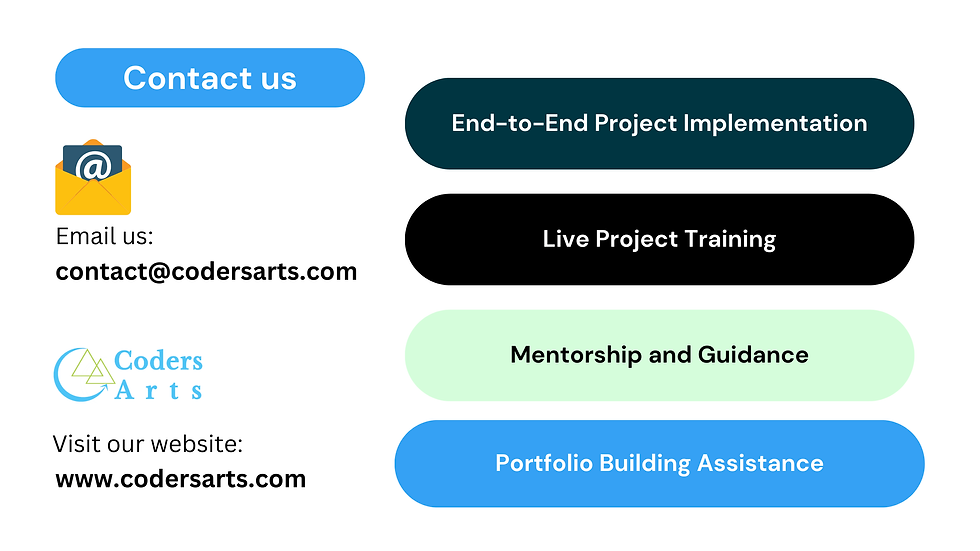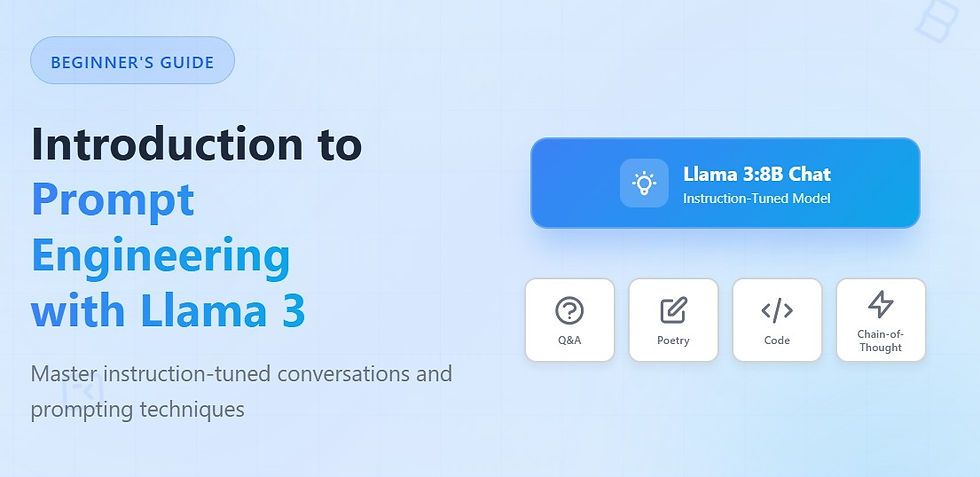Transformers4Rec implementation Help
- Codersarts

- Sep 29, 2024
- 5 min read
In recent years, Transformer-based models have become a powerful tool in various fields, including recommendation systems. Transformers4Rec is an emerging framework that brings the power of Transformers to recommendation systems, particularly in the context of personalized content, such as next-item or course recommendations.
Whether you are a student, developer, business owner, or researcher, this blog covers how our team of machine learning experts can help you leverage Transformers4Rec to achieve your goals.

Introduction to Transformers4Rec
Transformers4Rec is a cutting-edge framework that leverages transformer-based models to enhance the performance of recommender systems. This innovative approach utilizes the powerful capabilities of transformers, originally designed for natural language processing tasks, to revolutionize the way recommendations are made in various online platforms.
By incorporating transformers into the recommendation process, Transformers4Rec can effectively capture complex patterns and dependencies in user-item interactions, leading to more accurate and personalized recommendations. One of the key significance of Transformers4Rec lies in its ability to handle long-range dependencies in user behavior data, which traditional recommender systems often struggle with. The self-attention mechanism in transformers allows the model to focus on different parts of the input sequence simultaneously, enabling it to capture both local and global patterns effectively. This leads to improved performance in recommendation tasks, especially in scenarios where users' preferences are influenced by a wide range of factors.
Moreover, Transformers4Rec facilitates the integration of various types of data sources, such as textual information, user demographics, and temporal dynamics, into the recommendation process. This multi-modal approach enables the model to learn richer representations of users and items, resulting in more context-aware and diverse recommendations. By considering a wide range of signals, Transformers4Rec can provide more relevant suggestions to users, ultimately enhancing their overall experience and engagement with the platform.
Key Features and Benefits
Highlight the advantages of using Transformers4Rec over traditional methods.
When considering the advantages of using Transformers4Rec over traditional methods, it is important to delve into the transformative impact this cutting-edge technology can have on recommendation systems. One key feature that sets Transformers4Rec apart is its ability to leverage the power of transformer models, which are renowned for their effectiveness in capturing complex patterns and relationships in data. By utilizing these advanced models, Transformers4Rec can provide more accurate and personalized recommendations to users, leading to improved user satisfaction and engagement.
Furthermore, another significant benefit of Transformers4Rec is its scalability and efficiency. Traditional recommendation methods often struggle to handle large datasets and real-time updates, which can hinder their performance in dynamic environments. In contrast, Transformers4Rec is designed to efficiently process vast amounts of data and adapt quickly to changes, making it well-suited for applications requiring fast and reliable recommendations.
In addition, Transformers4Rec offers enhanced flexibility and adaptability compared to traditional methods. Its architecture allows for easy integration of new features and data sources, enabling organizations to customize their recommendation systems to meet specific requirements and objectives. This adaptability ensures that recommendations remain relevant and up-to-date, even as user preferences and trends evolve over time.
Overall, the key features and benefits of Transformers4Rec highlight its superiority over traditional methods in terms of accuracy, scalability, efficiency, flexibility, and adaptability. By embracing this innovative technology, organizations can enhance their recommendation systems and deliver more personalized experiences to their users, ultimately driving greater business success and customer satisfaction.
Architecture and Components:
The architecture of Transformers4Rec and how it works.

Transformers4Rec is a sophisticated recommendation system that utilizes state-of-the-art transformer models to provide personalized recommendations to users. The architecture of Transformers4Rec consists of several key components that work together seamlessly to deliver accurate and relevant recommendations.
At the core of Transformers4Rec is the transformer model, a deep learning architecture that excels at capturing complex patterns in sequential data. This model is trained on vast amounts of historical user interaction data to learn the underlying preferences and behavior of users. By encoding both user and item information into dense embeddings, the transformer model can effectively capture the intricate relationships between users and items.
In addition to the transformer model, Transformers4Rec incorporates various components such as embedding layers, attention mechanisms, and multi-layer perceptrons. The embedding layers map users and items to low-dimensional vectors, enabling the model to efficiently process the input data. The attention mechanisms allow the model to focus on relevant parts of the input sequence, enhancing its ability to learn meaningful patterns. The multi-layer perceptrons further refine the representations learned by the transformer model, enabling it to make precise recommendations. During the inference phase, Transformers4Rec takes user interactions as input and generates a ranked list of recommended items based on the learned user preferences. By leveraging the power of transformer models, Transformers4Rec can provide personalized recommendations that cater to the unique tastes and preferences of each user.
Overall, the architecture of Transformers4Rec is designed to leverage the capabilities of transformer models to deliver accurate and personalized recommendations. By combining cutting-edge deep learning techniques with a comprehensive understanding of user behavior, Transformers4Rec sets a new standard for recommendation systems in terms of performance and user satisfaction.
Types of Assistance for Transformers4Rec and Codersarts' Offerings
Codersarts, as a service provider in the field of machine learning and deep learning, likely offers assistance in various aspects of Transformers4Rec. Based on the common needs and challenges associated with this model, here are some potential areas where Codersarts might provide help:
Technical Assistance
Model Implementation: Customizing and implementing Transformers4Rec for specific use cases, datasets, or hardware configurations.
Hyperparameter Tuning: Optimizing model performance through careful tuning of hyperparameters.
Training and Evaluation: Assisting with training and evaluation processes, including data preparation, model selection, and performance metrics.
Deployment: Deploying Transformers4Rec models into production environments, such as web applications or mobile apps.
Conceptual Understanding
Model Architecture: Explaining the intricacies of the Transformers4Rec architecture and its components.
Comparison with Other Models: Comparing Transformers4Rec to other recommendation models, highlighting its advantages and disadvantages.
Theoretical Foundations: Providing in-depth explanations of the theoretical concepts underlying Transformers4Rec, such as attention mechanisms and self-attention.
Specific Use Cases
Recommendation Tasks: Applying Transformers4Rec to various recommendation tasks, such as item recommendation, user-based recommendation, or contextual recommendation.
Data Preparation: Assisting with data preparation and preprocessing, including feature engineering and normalization.
Evaluation Metrics: Selecting appropriate evaluation metrics to measure the performance of Transformers4Rec models.
Customization and Extension
Custom Layers and Modules: Creating custom layers or modules to extend the capabilities of Transformers4Rec for specific requirements.
Integration with Other Systems: Integrating Transformers4Rec with other systems or components, such as collaborative filtering or content-based recommendation.
Research and Development: Collaborating on research and development projects related to Transformers4Rec,exploring new architectures or techniques.
Codersarts, as a machine learning service provider, is likely to offer a range of services tailored to these needs. They may provide:
Consulting and Advisory Services: Providing expert advice on selecting and implementing Transformers4Rec for specific use cases.
Model Development: Developing custom Transformers4Rec models based on client requirements.
Training and Education: Offering training programs or workshops on Transformers4Rec.
Support and Maintenance: Providing ongoing support and maintenance for deployed Transformers4Rec models.
It's important to note that the specific services offered by Codersarts may vary, so it's recommended to reach out to us directly to inquire about our offerings and how we can assist with your specific needs related to Transformers4Rec.
Our team of expert machine learning developers is highly experienced in implementing advanced AI models like Transformers4Rec. We provide personalized support and flexible services to ensure that students, researchers, developers, and businesses can successfully adopt and implement this powerful framework.
Get in Touch with Us Today
If you’re working with Transformers4Rec or need help building an advanced recommendation system, we’re here to help. Whether you’re a student working on a thesis or a business building the next big thing, contact us for expert assistance.

Keywords : Transformers4Rec implementation, Transformers4Rec training, Transformers4Rec evaluation, Transformers4Rec code, Transformers4Rec research, Transformers4Rec case studies, Transformers4Rec evaluation metrics, Transformers4Rec deployment



Comments